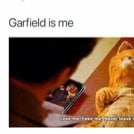Leaderboard
Popular Content
Showing content with the highest reputation on 08/25/2020 in Posts
-
3 points

800 calories
anniedebbie and 2 others reacted to ms.sss for a post in a topic
800 calories can actually be alot of food if you choose the right ones. 4oz of grilled chicken sprayed with avocado oil & seasonings is a measly 110 calories, and will likely be more than you can even take in in the early months. 3 cups of a mixed green salad with cucumber and carrots and a sugar free vinaigrette is less than 50 calories 1 cup of pasta carbonara (made w/ two strips of bacon and 1 large egg) on shiratake noodles is 162 calories and is crazy filling. Going low-cal and not feeling starved is def. possible, ESPECIALLY in the first few months. Good Luck! P.S. I did less than 800 cals a day until I reached goal (and even much much less in the first 3 months) P.P.S. I figured it was just something I had to do get to where I wanted to be. I am almost 2 yrs post op now and have been maintaining my weight for over a year at much, much more calories. -
2 points

Mental Health and Surgery
JessLess and one other reacted to LaLaDee for a post in a topic
In order to have the best chance of success, I tried to ensure that my symptoms of depression and anxiety were well managed before surgery. I also continued to work with my psychologists and psychiatrists. I think it's helpful to remember that WLS or losing weight won't magically solve all your problems. It's quite common to go through relationship issues (divorce rates are statistically higher according to most bariatric studies) and even transference to other addition issues (you can go from food to alcohol or even opiates). I think it's also quite easy to slip into orthorexia (an eating disorder that involves an unhealthy obsession with healthy eating). On the other hand, losing weight can be great for your mental health. You can find self esteem and confidence that you have been missing your whole life. I definitely put myself "out there" more. I think everyone's journey is different. Best of luck! -
1 point

Mental Health and Surgery
RichelleGetsFit0309 reacted to Tiernan1212 for a post in a topic
The place I'm looking at for my surgery seems to have a very comprehensive team, including a psychiatric. I'm absolutely going to be open and honest about my mental health. I have an appt with my NP next week, so I'll talk to her about it then as well. It sounds like you have a great plan, thank you for the pointers! Sent from my SM-G988U using BariatricPal mobile app -
1 point

I want to practice 100 mg protein
tarotcardreader reacted to LaLaDee for a post in a topic
I'm three years post op, and I aim for about 80grams of protein a day. WLS patients need to prioritise protein, so it's just a way of life for me at this point. You just have to focus on each meal being very high in protein. I find it helpful to learn what foods are high in protein (e.g. lean chicken breast, eggs, almonds, beans, chick peas) and always have them available in your kitchen. Even now, I still supplement with protein powder/protein creamers. I will make a smoothie or stir it into my coffee. I do prioritise protein over anything else. I never, never eat a meal or snack with just empty carbs (other than some dark chocolate for a treat). There always has to be protein in each meal. It helps that I'm a bit of a carnivore though. I like the taste of carbs, but I'll have meat with only a spoon of gluten free pasta or rice. The priority is always protein. Sometimes I think of myself like a player in a video game where the objective is to score extra points by having as much protein as possible. I eat so much chicken, it's ridiculous. High protein milk is good too. You get used to reading the labels on everything to check macros and protein. My other tip would be track your food with MyFitnessPal. Even the free version will keep track of your protein. Right after my surgery, I also had a special bowl and plate which marked out the ratio of how much protein should be on the plate. If I'm low on protein, I'll usually make myself drink a smoothie, that's 20grams of protein right there. If you haven't had your surgery yet, it should be relatively easy to hit the protein goals because you're not dealing with restriction yet. -
1 point
Getting a little nervous
DwGirl reacted to RichelleGetsFit0309 for a post in a topic
I didn’t have a drain tube but I did have surgery last week. It’s normally to be nervous but it will be worth it in the end. You got this. -
1 pointOf the mainstream procedures, the sleeve will be the most benign of them when it comes to supplement needs and the amount of trouble one can get into by ignoring them and the labs. Supplementing with the sleeve is largely an individual thing - there is much more influence by individual variations and dietary habits than there is from the surgery. I've never heard of B1 being a particular problem, but given that the primary dietary source is from the grain complex, and many people are into low carb dieting (Atkins, Keto, etc.) that minimizes that food group, it isn't surprising that such deficiencies would be showing up - not from the procedure, but from the chosen diet. My wife is chronically low in Potassium, but that is just her, not her WLS (as DS in her case.) That is managed by checking levels periodically and adjusting supplements as needed - just as if she had never had WLS. I have heard it hypothesized that there might be some iron absorption issue with the sleeve owing to the somewhat more rapid transit times of food through the stomach, but I haven't seen any validation of that concern. The malabsorbing (RNY, DS) procedures specifically do malabsorb minerals such as iron to varying degrees as much of the mineral absorption happens in the duodenum which is bypassed entirely (in the RNY) or partially (in the DS) so iron levels can certainly be more of a challenge with those patients. I had a bleed a few years ago that sapped my iron/ferritan levels, but was able to restore them to normal in a few months by doubling my oral iron supplement; most with an RNY or DS would need iron infusions to recover from those levels. I tend to lose a bit of D normally so have been supplementing that since before my VSG and continue to do so at moderate levels (2-5k IU) both from that perspective, and also our surgeon prefers to see us in the higher end of the normal range on the blood levels; some in the malabsorbing camp will use 50k IU supplements to keep things in line (particularly the DS folks who specifically malabsorb fat soluble vitamins such as D) I know quite a few long time DS people (10-20+ years) and have seen very little problem as long as labs are regularly taken (annually usually) and responded to; however ignore those at your peril as weird things can happen if you don't. And that's with the DS, which is the fussiest of the procedures in that regard. With a sleeve, you are much more likely to get into trouble by something that you bring to the table - whether that be intrinsic or behavioral - but that is good reason to keep up with periodic lab checks just the same (my labs are a lot simpler than those of a typical DS or RNY person, as there is less that is needed to be monitored with the VSG.)
-
1 point

What was your early weight loss like?
tarotcardreader reacted to andreariv for a post in a topic
Im 2 months out also. I weigh in weekly. The first month I lost 4-5 pounds a week. Now averaging 2-3 a week. -
1 point

Hospital Stay
DwGirl reacted to JordanKylie for a post in a topic
I was soooooo sick for the first 18ish hours. I was really glad my husband didn't have to see me like that. There are pros to every bad situation. Lol. -
1 point

What was your early weight loss like?
MagentaMom reacted to Postop for a post in a topic
@WhatATool:-) I lost 19 lbs. the first month. I only weighed at the Doctor's office so I have no idea what I was earlier than that. While some might be disappointed by that number, I was thrilled. It was the most I'd ever lost in a month & I hadn't gained as I normally would have if I'd kept on as I was pre surgery. Now 15 years later, I am right where I want to be. I hope you will be, too. -
1 point

Feeling so weary
RainbowBrite57 reacted to Bigman12345 for a post in a topic
Definitely a stressful time, all the build up to it and waiting is exhausting



